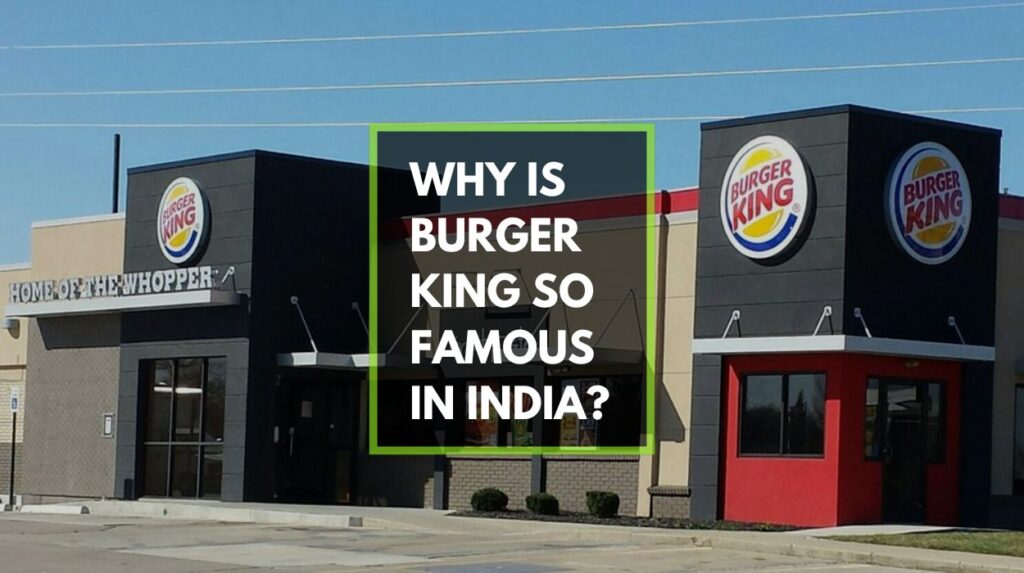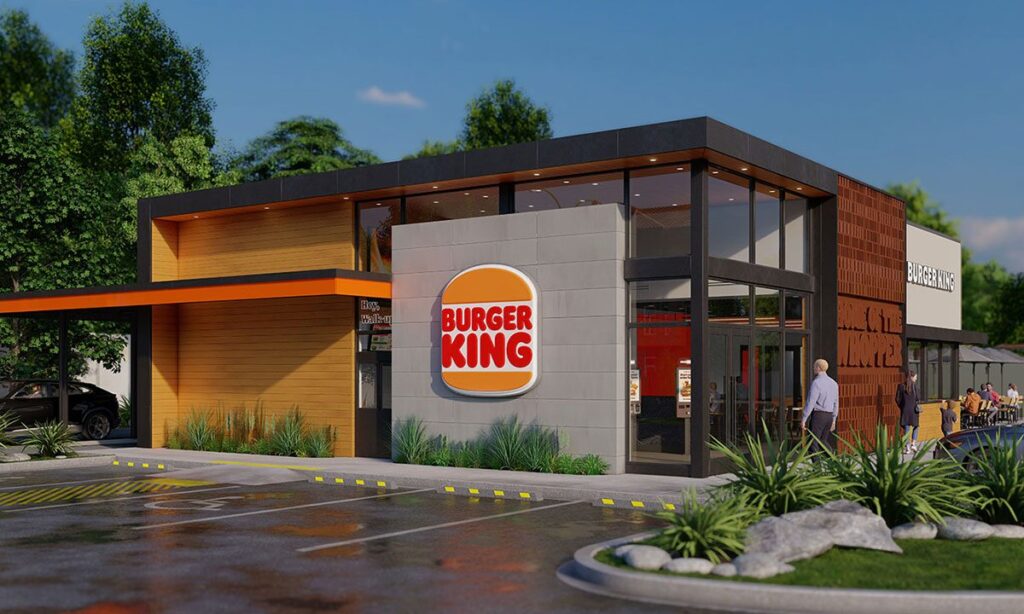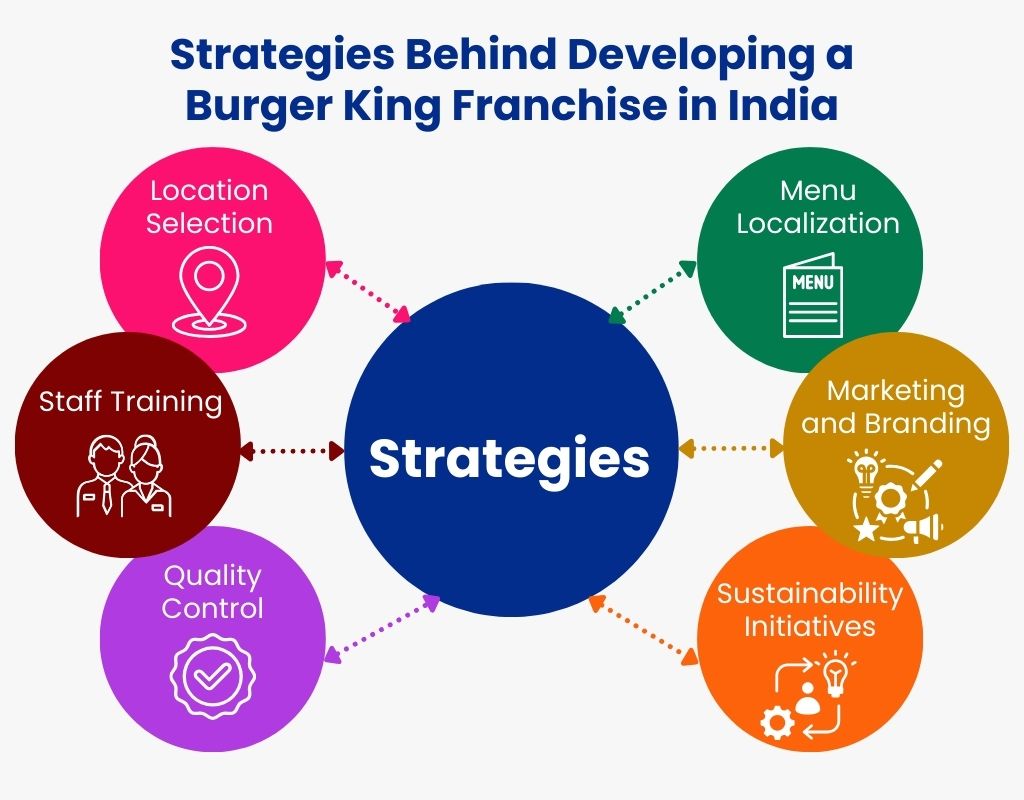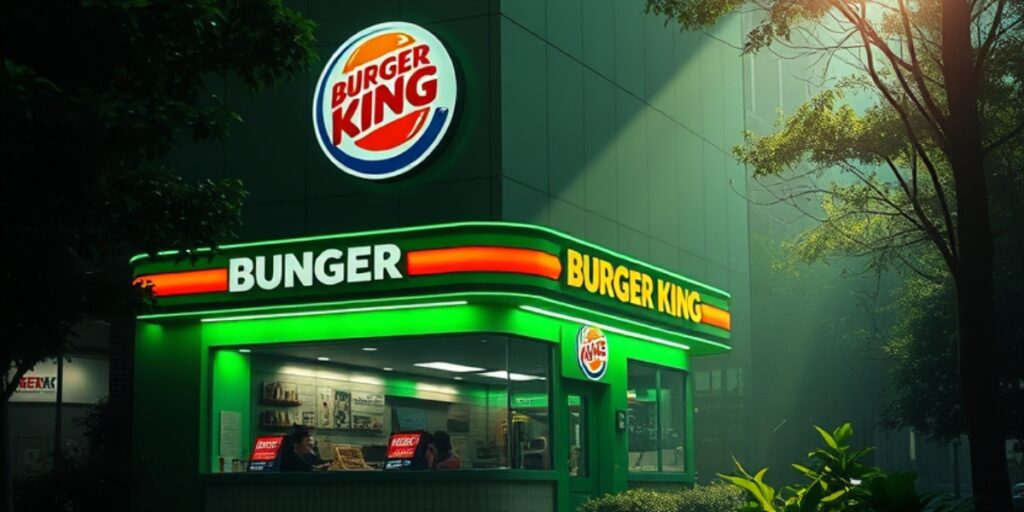The fast-food business in India has experienced remarkable growth, presenting profitable opportunities for aspiring business owners. Among the prominent brands in this sector is Burger King, celebrated for its signature flame-grilled burgers and diverse menu options. As Burger King continues to broaden its presence across the nation, many entrepreneurs are exploring the possibility of investing in a Burger King franchise.
Understanding the outlet of Burger King franchise cost in India is essential for those considering this experience. The financial commitment involves various components, such as initial franchise fees, ongoing royalties, and operational costs.
This guide aims to shed light on the expenses associated with establishing a Burger King franchise apply, while also highlighting the comprehensive support provided by the brand and the potential for profitability. Whether you are an experienced business professional or venturing into entrepreneurship for the first time, this information will equip you with the knowledge needed to navigate your path toward franchise ownership successfully.
The Burger King Brand
Burger King, founded in 1954, has grown into one of the largest and most recognized fast food brands in the world. Its signature flame-grilled burgers, value-for-money meals, and extensive variety in its menu have made it an appealing choice for customers.
In India, Burger King outlet has tailored its menu to suit the Indian palate by incorporating vegetarian options, local spices, and flavors. The brand’s ability to localize its offerings while maintaining international standards has been a crucial factor in its success.
Globally, outlet of Burger King operates on a franchise model, which allows individual entrepreneurs to operate under the brand’s name while sticking to its strict quality and operational guidelines. This model has worked exceptionally well in India, where there is a growing demand for Western-style fast food, particularly in urban centers.
Why is Burger King So Famous in India?

Burger King stands out for several reasons in India including their efforts to cater to the unique piquancy of the Indian palette:
Varied Menu:
Unlike some competitors, Burger King outlet offers a wide range of both vegetarian and non-vegetarian options. Its famous ‘Whopper burger’ has been customized for the Indian market with options like the ‘Veg Whopper’ and ‘Paneer King Melt’.
Quality Control:
Burger King has stringent quality standards, which ensures that every outlet provides consistent food and service, regardless of the location. Their guidelines are designed to provide delicious and safe meal options to their consumers.
Affordability:
The company has successfully managed to strike a perfect balance between quality and price. This makes it accessible to a wide range of customers, from students to families. Capturing the hearts of Indians means that it provides quality food at reasonable prices. Burger King achieved that milestone as well.
Digital Presence:
Burger King franchise cost has embraced the transformation of digital marketing and technologically aided delivery apps, making it easy for customers to order online or through food delivery apps like Zomato and Swiggy. Burger King has managed to leave a lasting digital footprint with their brilliant marketing strategies.
Localization of tastes:
One of the key reasons for its success is how well Burger King outlet has adapted its menu to suit Indian tastes. With special spices and more vegetarian options than in most other markets, Burger King has won over the hearts of Indian customers. They cater to the tastes of billions of people worldwide.
Application Process for a Burger King Franchise in India – Step-by-Step Guide
The application process to become a Burger King franchisee in India is structured and detailed. Here’s your step-by-step journey to become an aspiring franchisee in these days with one of the world’s most recognized fast food brands.
1. Research and Initial Inquiry
The first and most important step is to go through extensive research of the Burger King brand. The company’s values, menu offerings, target audience, and competition for potential franchisees to understand. This stage also involves reaching out to Burger King India to express initial interest and gather initial information on the franchising model.
2. Application Submission
After making the initial inquiry, the serious candidate must file and submit the official Burger King franchise application. This form will usually request personal and financial details, business experience, and your motivation to begin a franchise. The applicants should provide details in their responses to strengthen their candidacy.
3. Review and Financial Assessment
After the application is submitted, the Burger King franchise team is going to check it carefully. Franchise requirements are evaluated to see if the applicant meets the financial benchmarks, such as the minimum net worth or the availability of adequate liquid assets. Also, a previous experience in the food and beverage industry can significantly help on the application.
4. Interview and Evaluation
The Burger King franchise development team invites qualified applicants for one or more interviews. These sessions allow the franchisor to learn more about the applicant’s objectives when entering and running a business. It’s also great for candidates to ask questions about operational support, marketing, and expectations.
5. Location Approval
The location of a Burger King outlet highly affects its success. The brand formalizes the work with the franchisee to find and approve a suitable site. Visibility, accessibility, foot traffic, and the availability of parking are key factors. During this phase, the franchisee may also have to seek local municipal permissions and clearances.
6. Franchise Agreement and Training
After the location is chosen, the franchisee signs the franchise agreement, which legally allows the franchisee to operate under the Burger King brand. The franchisee and their core team go through comprehensive training that covers all areas from daily operations to customer service. So that they stay in line with Burger King’s global standards.
Burger King Franchise Profit Margin in India
Due to the presence of the Burger King brand in India and the brand’s loyal customers, the profit margin of the Burger King franchise in India can be very lucrative indeed. Profit margins may vary based on factors such as market conditions, operation efficiency, and location.
But the investment should pay off well for franchise owners. A typical profit margin is between 15% and 20% but can increase with wise site selection and efficient administration.
Burger King Franchise Cost in India

Investing in a Burger King franchise cost in India can be a profitable business decision, but it does require a significant initial investment. Here’s a breakdown of the main costs:
Franchise Fee:
To open a Burger King franchise cost in India, the franchisee must pay an initial franchise fee. This fee typically ranges between ₹11 lakhs to ₹37 lakhs depending on the location and the type of outlet (e.g., standalone outlet or food court outlet). Their insurance fees will range between ₹6 lakhs to ₹18 lakhs.
Working Capital:
Like most franchises, Burger King outlet requires a working capital that will cover their day-to-day expenses and also employee benefits. This fee is typically around ₹15 lakhs to ₹67 lakhs.
Setup Costs:
In addition to the franchise fee, franchisees will also need to invest in setting up the outlet, which includes interior design, furniture, equipment, and other necessary infrastructure. The setup cost can range from ₹2 crore to ₹3.5 crore depending on the location and the size of the outlet.
Inventory management:
Expenses such as billing and control desk will require an investment between ₹26 lakhs to ₹44 lakhs. Development and the maintenance of the outlet with one-time equipment needs will sum up to ₹18 lakhs.
Typically, considering all this, a Burger King franchise cost between ₹5 crores to ₹10 crores (depending on the location).
Strategies Behind Developing a Burger King Franchise in India

Developing a Burger King franchise is more than just securing the necessary funds. It requires a smart strategy, a good location, and strict operational guidelines. Here are a few critical components of the strategy behind opening and managing a Burger King franchise cost in India:
Location Selection
Location is one of the most important factors when opening a Burger King outlet. The franchise needs to be in a high-footfall area, such as malls, high streets, or food courts, to attract maximum footfall. Choosing the right location can be the difference between a thriving franchise and one that struggles to break even.
Staff Training
Burger King places extreme importance on staff training. Every employee, from kitchen staff to the frontline cashier, undergoes comprehensive training to ensure they meet the company’s high standards. This training focuses on customer service and operational efficiency.
Quality Control
Maintaining quality is crucial in the fast food industry, and Burger King is no exception. The franchise must consistently meet the brand’s global standards, including the use of fresh ingredients, cleanliness, and timely service.
Menu Localization
Burger King outlet in India has successfully integrated local flavors into its global menu. To appeal to Indian consumers, especially vegetarians, the franchise offers items like the ‘Veg Whopper’ and ‘Paneer King’. This kind of localization ensures that the brand stays relevant and competitive in a diverse market like India.
Marketing and Branding
While Burger King’s global branding is strong, local marketing efforts are essential for individual franchise success. Franchisees must engage in local promotional activities, collaborate with food delivery apps, and maintain a strong presence on social media.
Sustainability Initiatives
In recent years, Burger King franchise cost has been strong on sustainability. This means the use of eco-friendly packaging and sourcing ingredients from local farmers and suppliers. Franchisees need to align with the brand’s sustainability goals to resonate with environmentally conscious consumers.
Why is Burger King a Sought After Franchise?
Burger King’s franchise model is highly sought after in India due to several reasons. The brand offers a comprehensive support system for its franchisees, including training, marketing assistance, and ongoing operational support. Furthermore, the brand’s strong global presence and intelligent marketing campaigns ensure that franchisees can benefit from high brand recognition right from the start.
Additionally, the demand for fast food in India has been growing steadily. This growth is driven by changing lifestyles, a growing middle class, and increased urbanization factors that create a promising environment for new fast-food franchises like Burger King.
Revenue expectations
Burger King franchises typically enjoy high-profit margins due to the low cost of ingredients and the relatively high price of the products. The average monthly revenue for a well-located Burger King outlet can range between ₹20 lakh to ₹50 lakh, depending on the location and footfall.
The brand’s business model focuses on maximizing efficiency and throughput. A high customer turnover rate combined with a wide range of products ensures that the franchise remains profitable, even with high operational costs. Franchisees benefit from their catchy campaigns without having to shoulder the marketing burden themselves. Burger King maintains competitive pricing for its menu while also ensuring quality. This phenomenon resonates well with cost-conscious consumers. This strategy keeps customers coming back while generating high sales volumes for the franchise owners.
India’s fast-food industry is booming and is highly driven by a young and urbanized population looking to expand their taste palette. As more Indians turn to quick-service restaurants for convenience, Burger King is positioned at the right place to capitalize on this trend with its wide range of affordable and appealing food options to its Indian audience.
Its brand recognition brings immediate customer trust and foot traffic to any franchise, reducing the challenge of building brand awareness from scratch. So, the franchise owners only stand to gain from a Burger King franchise as the brand recognition and reputation help them to attract more consumers.
Explore more franchise articles:
Mcdonald’s franchise cost in India
KFC franchise cost in India
Conclusion
In conclusion, investing in a Burger King Franchise cost in India can be a profitable experience for the right entrepreneur. While the initial investment may seem high, the franchise offers gigantic support systems, strong brand recognition, and an established business model that can yield impressive returns. With the fast food industry in India on the rise, there’s never been a better time to get involved.
As India’s urban population grows and its appetite for fast food expands, owning a Burger King franchise provides a valuable opportunity to capitalize on this booming sector. Before investing, it’s important to conduct thorough research, choose the right location, and ensure that you can meet Burger King’s strict operational standards.
Like every major fast food chain, Burger King has its flagship ingredients and recipes. The fact that the Indian audience lean towards certain brands is because of the trust that the consumers approach that brand. This includes Burger King. Burger King is the first name that rings in the minds of millions of people when thinking about burgers.
FAQs on Burger King Franchise Cost in India
1. Are there ongoing fees associated with a Burger King franchise?
Yes, franchisees must pay a royalty fee of 4.5% on monthly gross sales, along with an advertising fee of 4% for national and regional marketing campaigns.
2. How long is the franchise agreement with Burger King?
The franchise agreement with Burger King typically lasts for 20 years, allowing franchisees to operate under the brand’s guidelines during this period.
3. What kind of support does Burger King provide to its franchisees?
Burger King offers comprehensive support including training programs, marketing assistance, operational guidance, and ongoing support to help franchisees succeed.
4. What factors can influence the total investment required for a Burger King franchise?
Factors influencing total investment include location (urban vs. rural), outlet size, real estate costs, renovation needs, and local market conditions.
5. What additional costs should be considered when opening a Burger King franchise?
Additional costs may include working capital (around ₹50 lakhs), insurance fees, business licenses, and expenses related to interior design and construction, which can vary widely based on location.

